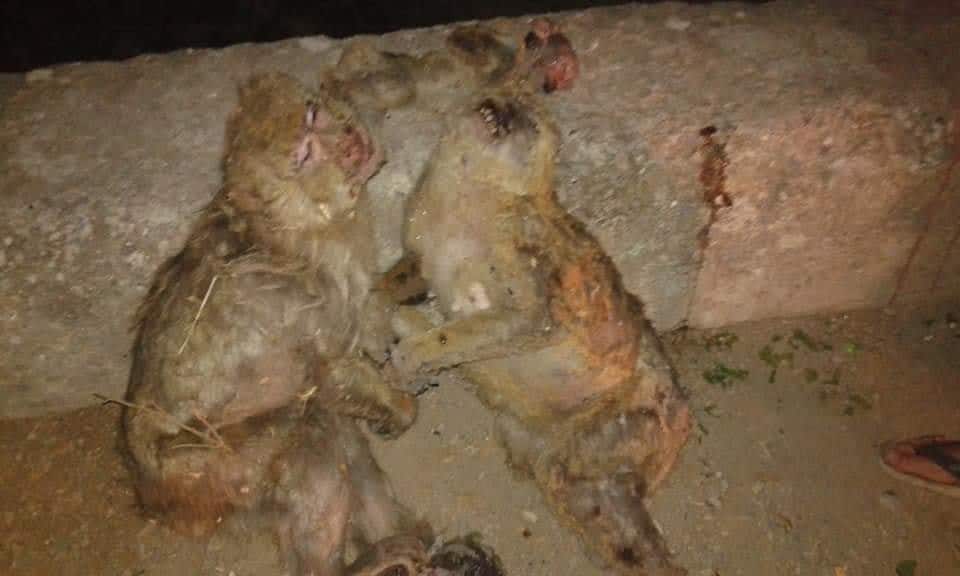Over the past week, hundreds of wildfires have been ravaging several areas in Algeria. Hundreds of hectares of forest and private properties have been ravaged across several wilayas (provinces) of the centre-north and east, but Kabylie remains one of the most affected regions.

In part of that region, the Bouira province “dozens of people were injured, slightly burned or suffocated as they faced the flames. Hundreds of hectares of forest, maquis (shrubland) and fruit trees have been reduced to ashes” reported El Watan newspaper on 28 July. It added “The wildlife of the region did not survive the disaster. Dozens of Barbary macaques and other species have perished”. “Mount Tamgout or Lalla Khelidja, the symbol of Kabylie, was on fire for days” adds the same source. This independent and respected newspaper qualified these wildfires as “an ecological disaster”, as did several ecologists.
The official news agency (APS), also reported about these Barbary macaques on 26 July: “During the last 24 hours, several tens of hectares of forests, scrub … went up in smoke especially in Tala Rana, (East of Bouira), as well as in Tikjda, where several Barbary macaques and other animal species perished burnt under the flames”. Tikjda is located in the Djurdjura Mountain Range.



The Barbary macaque in endemic to Northwest Africa (Morocco and Algeria) where it occurs in discontinuous forest patches. A small introduced population also present on Gibraltar. The species is currently categorized as ‘Endangered’ by the IUCN Red List.